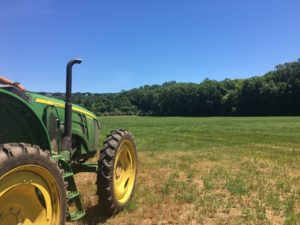 Today, Working Lands Alliance submitted comments on Governor Ned Lamont’s Executive Order Number 3 that will strengthen the state’s transition to a decarbonized economy and enhance the resiliency of our economic, cultural, and natural resources to the impacts of climate change. This Executive Order was signed in early September and created the Governors Council on Climate Change. The council will do two things:
Today, Working Lands Alliance submitted comments on Governor Ned Lamont’s Executive Order Number 3 that will strengthen the state’s transition to a decarbonized economy and enhance the resiliency of our economic, cultural, and natural resources to the impacts of climate change. This Executive Order was signed in early September and created the Governors Council on Climate Change. The council will do two things:
1.) Monitor and report on the state’s implementation of the greenhouse gas emissions reduction strategies set forth in the GC3’s December 2018 report Building a Low Carbon Future for Connecticut: Achieving a 45% GHG Reduction by 2030.
2.) Develop and implement adaptation strategies to assess and prepare for the impacts of climate change in areas such as infrastructure, agriculture, natural resources, and public health.
In our letter, we highlighted the importance of our working forest and agricultural lands as an essential part of this effort, as they have the potential to sequester large amounts of carbon, reduce flood threats, protect water resources, and their products help diversify the economy of Connecticut. The opportunity for increased climate change mitigation and decarbonization, that working lands in Connecticut can provide, must not be overlooked.
Connecticut is fortunate to have a small but innovative agricultural community that works in “fierce cooperation” to configure programs and policies which will benefit all farmers, our environment, and our economy.
We want to thank the Governor Ned Lamont administration for asking for public comments. We look forward to working with the Department of Energy and Environmental Protection and the Governor Ned Lamont administration in advancing climate adaptation strategies in the upcoming months.
You can read WLA’s full text here:
11.8.2019WLALettertoCommissionerKatieDykesFINAL




